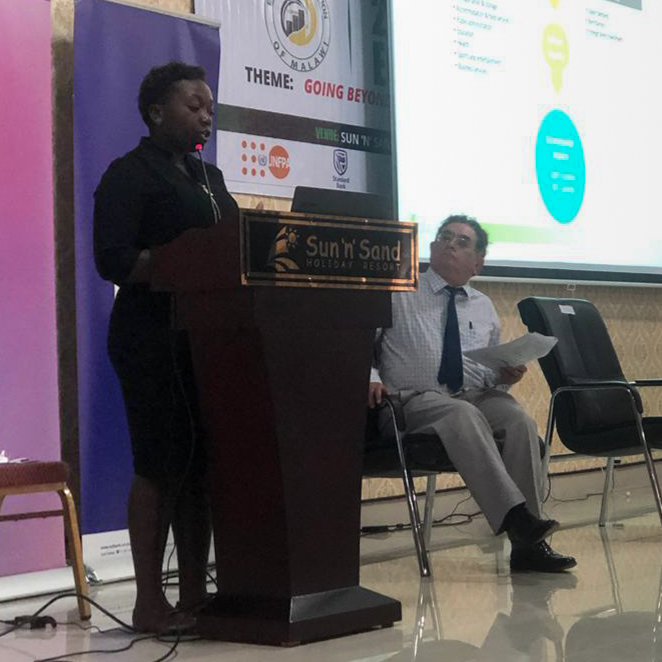The Short-Term Impacts of COVID-19 on the Malawian Economy, 2020–2021
A SAM multiplier modeling analysis
MaSSP Report
Authors: Bob Baulch, Rosemary Botha, and Karl Pauw, November 2020
This paper has been written for the 2020 ECAMA Lakeshore Conference. It extends and updates the initial results of modeling undertaken by IFPRI to assess the short-run impacts of COVID-19 control measures on the Malawian economy. We also consider the short-run effects of external shocks associated with disruptions in trade and tourism, investment, and remittance flows on the Malawian economy, as well as two medium-term paths assuming either faster or slower recovery during the remainder of 2020 and 2021. Using a SAM multiplier model, we estimate GDP declines by around 16.5 percent during April/May 2020 due to social distancing measures. This leads to around 1.6 million people, mainly in rural areas, temporarily falling into poverty, although urban households suffer the largest income losses.
We also model the impact of a faster and a slower lifting of restrictions and external shocks during the remainder of 2020 and 2021. With faster easing of restrictions, cumulative GDP gains turn positive by the third quarter of 2021 under the fast recovery scenario and exceed their pre-COVID-19 levels by US$178 million before the end of 2021. However, under the slow recovery scenario, Malawi’s GDP continues to decline until the end of 2020 before recovering during quarters 1 and 4 of 2021. However, this is not sufficient to wipe out the losses in quarters 2 to 4 of 2020, resulting in cumulative losses under the slow recovery scenario of US$332 million over the two years. Relative to the without COVID-19 scenario, US$937 million of GDP is lost under the fast recovery scenario and US$1,447 million under the slow recovery one.
As both the development of the COVID-19 pandemic and the economic situation in Malawi are highly uncertain at the present time, the results reported in this paper should be regarded as interim estimates, which are subject to revision as the underlying health and economic data change.
Download and read the paper here. (PDF 472 KB)
DOI: https://doi.org/10.2499/p15738coll2.133788
Please note: The paper was presented by Rosemary Botha and Bob Baulch during the 2020 ECAMA Lakeshore Conference on November 19, 2020.
Since 2012, the Economics Association of Malawi (ECAMA) has been organising annual conferences targeting high-level representatives from the private and public sector, civil society organisation and development partners. The annual conference aims at encouraging open, proactive debate and policy dialogue on pertinent economic issues in Malawi so as to inform policy formulation and influence the development agenda of the country. Learn more about ECAMA here.
Featured Image: Photo Credit - Melissa Cooperman/IFPRI
Photos of Rosemary Botha and Bob Baulch during the presentation: Tim de Borde.


